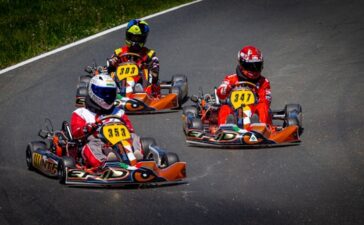For every parent, starting their child’s educational path is a joyful yet important step. It’s fair to feel a little overwhelmed as you make your way through the immense sea of information regarding junior school curricula in Melbourne. But do not worry! We’ll walk you through everything you need to know about Melbourne’s junior school curriculum in this blog article so you can plan ahead for your child’s future education. So grab a seat, and let’s discover all that Melbourne has to offer your little student!

An outline of Melbourne’s junior school curriculum
The junior school Melbourne is intended to give young students a strong foundation and position them for success in their academic endeavours. The curriculum places a strong emphasis on a holistic approach to education, giving students’ social and emotional growth equal weight with their intellectual progress.
Melbourne’s junior school curriculum places a significant focus on creativity, critical thinking, and problem-solving techniques in order to develop well-rounded people who can prosper in a world that is always changing. The curriculum, which spans Preparatory through Grades 1-6, is thoughtfully designed to meet the individual needs and skills of every student.
Teachers in Melbourne work hard to provide interesting lessons that pique students’ interest and make learning fun. The Junior School Curriculum in Melbourne seeks to arouse young minds and foster a lifelong love of learning by offering a nurturing and engaging atmosphere.
Recognising the Distinct Levels: Foundation, Preparatory, and Grades 1-6
For both parents and pupils, navigating Melbourne’s junior school curriculum can be an exhilarating adventure. Gaining an understanding of the various stages is essential to understanding your child’s academic progress.
As a stepping stone, the preparatory level emphasises social skills and preparation for a basic education. Children go deeper into topics including English, maths, science, and the humanities as they go on to Foundation.
Gradually, topics get more difficult as students move through Grades 1-6, pushing their developing minds to think critically and imaginatively about a variety of subjects. To promote a well-rounded education, each grade builds on the foundation set in the years prior.
Understanding these discrete junior school curriculum levels can help you to better support your child’s educational path and recognise their accomplishments as they go.
Junior School Core Subjects and Electives Offered
Core subjects are integral to the Junior School curriculum in Melbourne, as they equip children with critical knowledge and abilities. Usually encompassing English, Science, Mathematics, and Humanities, these form the cornerstone of an education that is comprehensive.
Junior schools in Melbourne frequently provide a variety of engaging electives in addition to core topics to accommodate a wide range of interests and abilities. Students might get the chance to investigate subjects like coding, languages, music, art, and physical education. These electives promote creativity and personal growth in addition to improving academic learning.
Schools encourage holistic growth by allowing students to find their passions and abilities outside of the classroom by offering electives in addition to core disciplines. This method encourages students to choose subjects they are genuinely passionate about while also assisting them in the development of critical thinking abilities.
Students can thrive academically and discover new interests in a dynamic learning environment that is created by the combination of core topics and electives. It gives students a broad skill set that gets them ready for possibilities and challenges in the future, both inside and outside of the classroom.

Particular Aspects of the Melbourne Curriculum
The Junior School curriculum in Melbourne is notable for including experiential learning opportunities that motivate students to delve further into the subjects covered in textbooks. The curriculum stands out for its emphasis on critical thinking and problem-solving abilities, which equips students for obstacles they will face in the real world.
The inclusion of outdoor education programmes, which promote physical activity and a connection to nature, is one distinctive aspect. This all-encompassing approach to education develops well-rounded people who are socially conscious in addition to being intellectually strong.
Furthermore, alongside traditional topics, art, music, and drama programmes are frequently given priority in Melbourne schools, which fosters creativity. As a result, students are free to express themselves and grow in a variety of subjects.
Another thing that sets them apart is how they employ technology as a teaching tool. Pupils are exposed to digital tools that improve their comprehension of subjects and provide important technological skills necessary in the current digital era.





